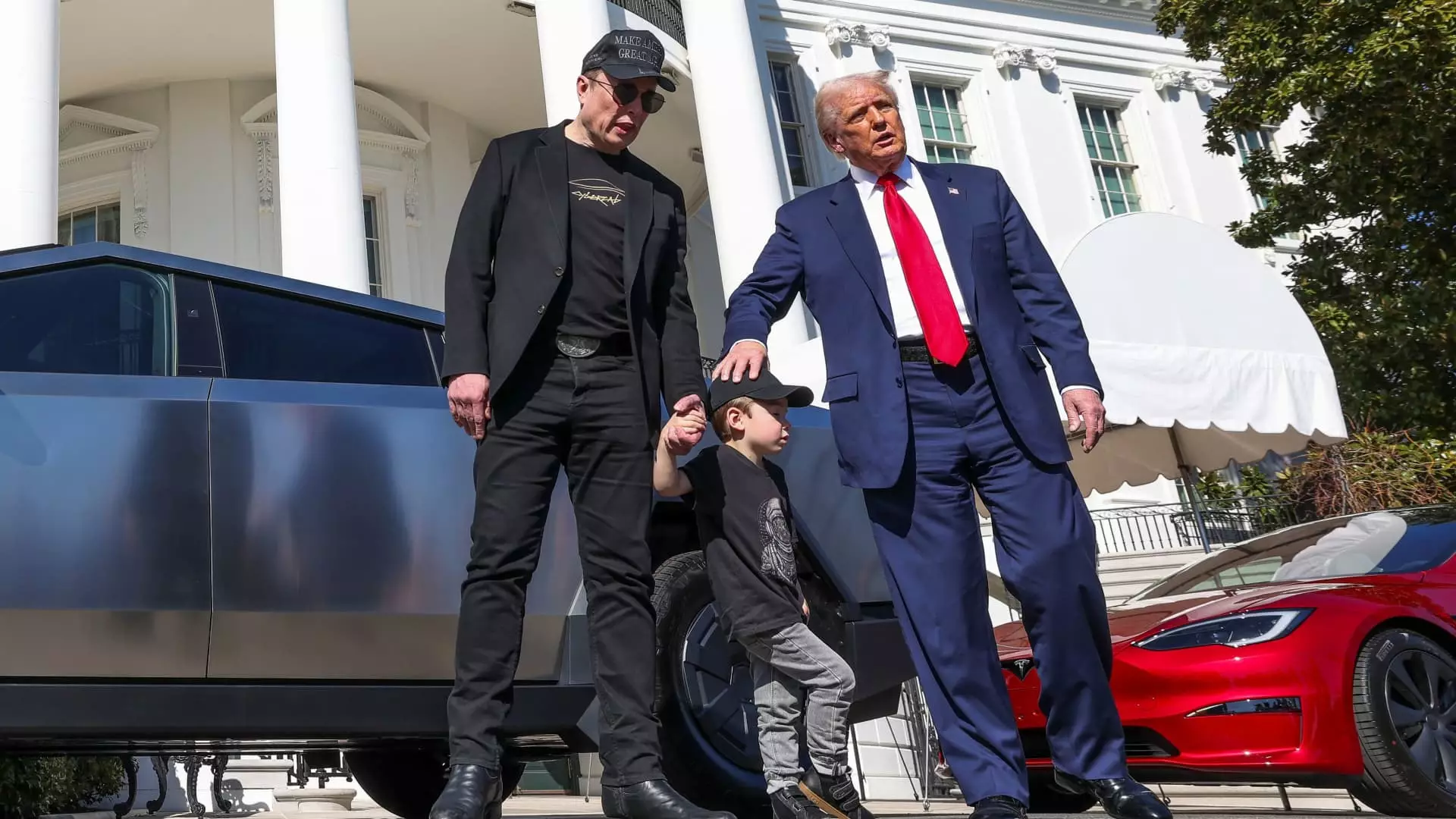Elon Musk has long been hailed as a pioneering force in technology and innovation. However, recent revelations from a Morgan Stanley survey reveal a troubling sentiment among stakeholders. A staggering 85% of respondents believe that Musk’s increasing involvement in politics is detrimentally impacting Tesla’s business outlook. This situation marks a critical intersection between corporate governance and personal ideology, raising essential questions about the appropriateness of a CEO acting as a political player. The sense of disillusionment surrounding Musk not only poses potential risks to Tesla’s market performance but also complicates his legacy as a forward-thinking entrepreneur.
While a poll of just 245 participants may not capture the full picture, the results are alarming. Respondents indicated that Musk’s political maneuvers—ranging from support for President Trump to heading the Department of Government Efficiency (DOGE)—have taken a toll, with a significant number labeling these moves as “negative” or “extremely negative.” The more Musk wades into political waters, the more investors seem to regard his decisions as erratic, creating an unstable atmosphere for what should be a market leader in sustainable technology.
Shadowing Sales Projections
The impact of these perceptions is profound, particularly in light of the respondents’ expectations that Tesla’s car deliveries will decline in 2025. More than half anticipate sales drops, claiming that vandalism and Musk’s polarizing political activities could further dissuade potential customers. With 21% of poll participants fearing a fall exceeding 10%, it’s evident that concerns over brand reputation and consumer confidence are intensifying. No longer viewed merely as a trendsetter in electric vehicles, Tesla’s identity may be morphing into a cautionary tale of how political ambitions can overshadow corporate purpose.
Musk’s acknowledgment that leading multiple ventures while simultaneously navigating a political minefield causes “great difficulty” is both candid and troubling. The stark reality is that Wall Street’s confidence in Tesla is faltering. When investors see their company’s leader embroiled in vehement political discourse, they tend to reassess their investment stakes, leading to volatility—in this case, a nearly 40% stock slump this year.
The Balancing Act: Business vs. Ideology
This precarious balancing act raises vital questions: Can a visionary like Musk effectively lead a billion-dollar enterprise while indulging in fervent political activism? The answer may lie in the expectations of the consumer base. Tesla was built on ideals of clean energy and technological innovation, garnering support from those aligned with its mission. However, as Musk immerses himself in divisive political narratives, it seems he risks alienating a significant segment of this very base—those who value corporate entities maintaining a neutral stance for the greater good.
Critics argue that his policy decisions, such as aggressive government spending cuts, show a lack of foresight, potentially jeopardizing crucial partnerships and market trust. The latest fallout from an unflattering New York Times report only adds fuel to the fire. Negative reflections from members of Trump’s inner circle land on the same stage as Musk’s tycoon persona, transforming corporate halo effects into liabilities as supporters become skeptical.
The Era of Expectations
Yet, despite this turmoil, not all is lost—45% of survey respondents still anticipate a rebound in Tesla’s stock by the year’s end. These more optimistic projections contrast with the disillusioned majority, suggesting that Musk’s wild ambitions might still hold merit for some. However, the real question remains: at what cost? Will the volatile interplay between Musk’s personal brand and his corporate goals enable Tesla to emerge resilient or will it drag the company further into the depths of uncertainty?
With the stock market often moving in tandem with sentiment, the coming months will be pivotal for both Musk and Tesla. The company’s reputation hangs in the balance, and it seems that unless Musk can pivot decisively or reassure investors of his focus on core business rather than divisive politics, the road ahead could bear the weight of considerable consequences. The stakes could not be higher for a visionary who transcended traditional business norms but now finds himself at a critical juncture—one where the cost of ambition may outweigh the benefits.

